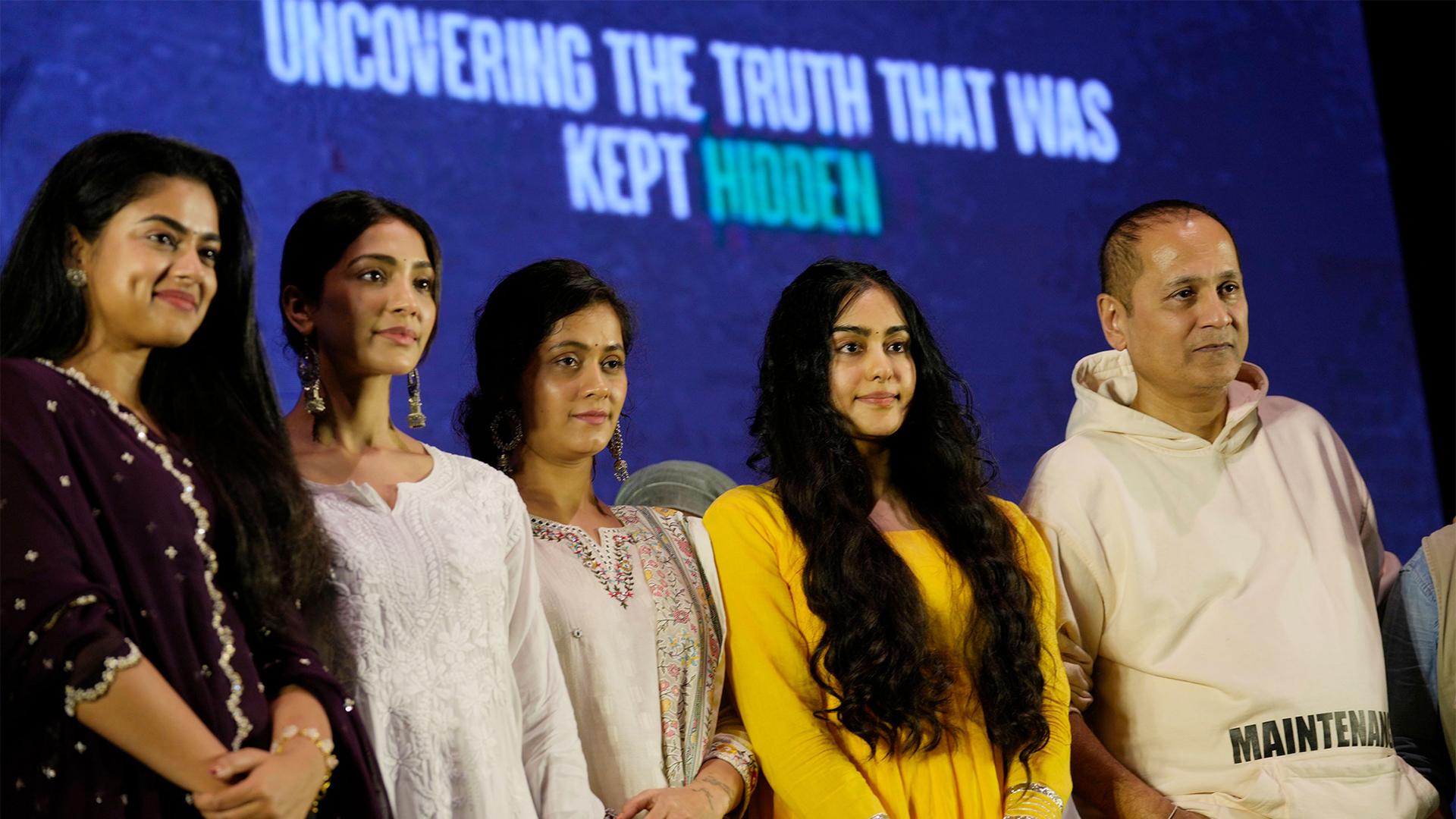A film called “The Kerala Story,” released in India earlier this month, claims that thousands of Hindu and Christian women from the southern Indian state of Kerala are being tricked into converting to Islam and then being forced to join the terrorist group ISIS.
The filmmakers have claimed that it is a “never-before-told true story — revealing a dangerous conspiracy that has been hatched against India.”
But many have objected to this message, saying it is divisive. Last week, a heated debate on social media soon escalated, leading to dozens of people gathering outside the police station in the central Indian town of Akola, where one person died and eight others were severely injured. Authorities suspended the internet in the region and arrested more than a hundred people.
Meanwhile, the state of West Bengal — which has a significant Muslim population — had preemptively banned the film in order to prevent such violence from breaking out.
The filmmakers took the ban to India’s Supreme Court. And last week, the court reversed it, but directed the filmmakers to add a disclaimer that the film is fictionalized.
Art or propaganda?
In November 2020, the US State Department stated that only “66 known Indian-origin fighters” were affiliated with ISIS, and that not all of them were from Kerala, nor were they all women. About a year later, India’s National Investigation Agency said that it had arrested 168 people connected to 37 cases linked to ISIS. But there is no evidence that anyone was coerced or tricked into joining the group.
“It was quite obvious from the trailer itself that this was propaganda through and through. It is toxic, divisive propaganda.”
Therefore, critics say “The Kerala Story” grossly exaggerates true events and indulges in significant misrepresentations of the Muslim community in Kerala.
“It was quite obvious from the trailer itself that this was propaganda through and through,” said Deepanjana Pal, managing editor of the website Film Companion. “It is toxic, divisive propaganda.”
Pal said that youth radicalization is an important topic that should be discussed, and that there should be films made on the issue. But, she added that “The Kerala Story” is as simplistic and Islamophobic as inciting WhatsApp forwards.
According to her, the film presents a clear cause and effect: “When a good Hindu woman is not aware of her faith and its rituals, etc., she becomes vulnerable to Islamic propaganda, and obviously the next thing is a) to become pregnant by a terrorist and b) to join ISIS.”
Sowmya Rajendran, a film critic originally from the state of Kerala, said the film gives the impression that every Muslim in Kerala is evil and is out to convert people from other religions, and then force them into terrorism.
“Every single Muslim in the film is represented as a violent savage person who just has one agenda,” she said.
Such messaging plays into the narrative of the ruling Bharatiya Janata Party (BJP). Indian Prime Minister Narendra Modi has endorsed the film, while two BJP-ruled states made the film tax free. And some political leaders even hired buses to ferry their constituents to theaters to watch the film.
“The film is clearly an attempt to defame the state,” Rajendran said.
Kerala is known for its religious diversity and high levels of development.
Meanwhile, some film critics drew parallels to another film released last year called “The Kashmir Files.”
“Both ‘The Kerala Story’ and “The Kashmir Files” have been used by the politicians for their campaigning and exhorting the public to watch [them],” managing editor Pal said.
Film does good business
“The Kerala Story” was released on May 5 and has made about $25 million.
“That is an obscene amount of money for a low-budget film to make,” Pal explained. “This is a producer’s dream.”
It was marketed as a movie that reveals a certain truth that had been deliberately hidden from the public. This raises everyone’s curiosity, said Rajendran. Moreover, these films are popular because it is easy to convince people that they are absolutely true, she said.
“That happens because we are already a society that has ghettoized Muslims. That divisive communal feeling is there in a lot of people and it has only become more acceptable in India to voice it,” she said. “And people who voice this are being rewarded.”
Not only are ideas of bigotry acceptable, but the subjugation of women seems to be another popular theme that resonates with the audience.
“We are a deeply patriarchal society. So, it appeals to us when somebody comes and says you have to keep your girls at home and only men from our community can have access to them,” Rajendran said. “When men from other communities develop relationships with them, then it cannot be an equal relationship. It can only be seen as a relationship where the woman is being lured into something. Or is being cheated. It is not as if she has made that choice.”
Related: Indian govt removes parts of Muslim history from federal textbooks
We want to hear your feedback so we can keep improving our website, theworld.org. Please fill out this quick survey and let us know your thoughts (your answers will be anonymous). Thanks for your time!
